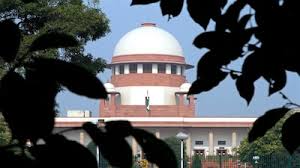2006 Mumbai train blasts case: Supreme Court to hear appeal challenging acquittal of 12 convicts on July 24

On July 11, 2006, Mumbai witnessed one of the deadliest terror attacks in India’s history. In just 11 minutes, seven bombs exploded in first-class coaches on suburban trains during peak evening hours. The blasts killed 189 people and injured more than 800.
The coordinated attack targeted the city’s lifeline—its local train network—spreading panic across the country. Investigators linked the incident to the banned Students Islamic Movement of India (SIMI), allegedly backed by foreign terror outfits.
Early Convictions and Later Acquittals
In 2015, a special MCOCA court convicted 12 people for their involvement. Five received the death penalty, while seven got life sentences. At the time, investigators relied on confessions, forensic reports, and witness statements.
However, on July 18, 2025, the Bombay High Court overturned those convictions. The judges ruled that the evidence presented was insufficient and flawed. This unexpected verdict raised major questions about the credibility of the investigation.
Why the High Court Acquitted the Accused
The High Court found several critical issues in the original investigation:
- Confessions under duress: Many confessions were made while the accused were allegedly tortured. The court found them inadmissible in a fair trial.
- Weak forensic links: The prosecution couldn’t prove that the bombs used were connected to the accused.
- Unreliable witness accounts: Several eyewitnesses gave conflicting or unclear testimonies.
- Poor handling of evidence: The court noted gaps in how the police collected and stored forensic materials.
The judges stressed that in a case of this magnitude, convictions must rest on solid, undeniable evidence—not assumptions or procedural errors.
Maharashtra Government Takes the Fight to the Supreme Court
Shocked by the High Court ruling, the Maharashtra government quickly filed an appeal in the Supreme Court. Deputy Chief Minister Devendra Fadnavis publicly called the decision “extremely disappointing.”
The state’s Anti-Terrorism Squad submitted a plea seeking to reinstate the convictions. It also requested an urgent stay on the acquittals to prevent the freed individuals from leaving jurisdiction or tampering with evidence.
Supreme Court Hearing Set for July 24
The Supreme Court agreed to hear the appeal on July 24, 2025. A three-judge bench led by Chief Justice B.R. Gavai will examine the case. The other two judges are Justice K. Vinod Chandran and Justice N.V. Anjaria.
This hearing is not just about one case—it represents a broader test for the justice system. The top court will decide whether the High Court’s decision was legally sound or whether the state has enough grounds to overturn it.
Victims’ Families Left in Shock
For families who lost loved ones in the blasts, the High Court verdict felt like betrayal. Many had waited nearly 20 years hoping for justice. Now, they feel the system failed them again.
Sunita Sharma, who lost her husband in the blasts, said, “We believed in the courts, but now it feels like our pain was forgotten.”
Although emotionally charged, some legal experts have urged caution. They emphasize that justice should always follow due process—even in the most serious cases. As Senior Advocate Indira Jaising noted, “Even the guilty deserve a fair trial.”
Key Legal Questions Before the Supreme Court
The case raises several important questions:
- Did the High Court overlook valid evidence?
- Were the accused denied a fair trial, or did the police violate legal norms?
- Can the Supreme Court restore the convictions based on the current record?
The state also plans to argue for a stay on the acquittals until a final ruling is made.
What This Case Means for India’s Legal System
This case isn’t just about correcting a verdict. It highlights the challenges of balancing national security and human rights. If the Supreme Court supports the acquittal, it could lead to calls for police reform and better investigative methods. On the other hand, if it overturns the High Court’s decision, it may restore faith in the system for many victims.
Either way, the outcome will shape how India handles terrorism cases in the future.
Final Thoughts
Nearly two decades after the 2006 Mumbai train bombings, the fight for justice is still ongoing. As the Supreme Court hears the appeal on July 24, the eyes of the nation will be on the outcome. For the families, investigators, and legal experts, the ruling will either offer long-awaited closure or reopen painful wounds.






